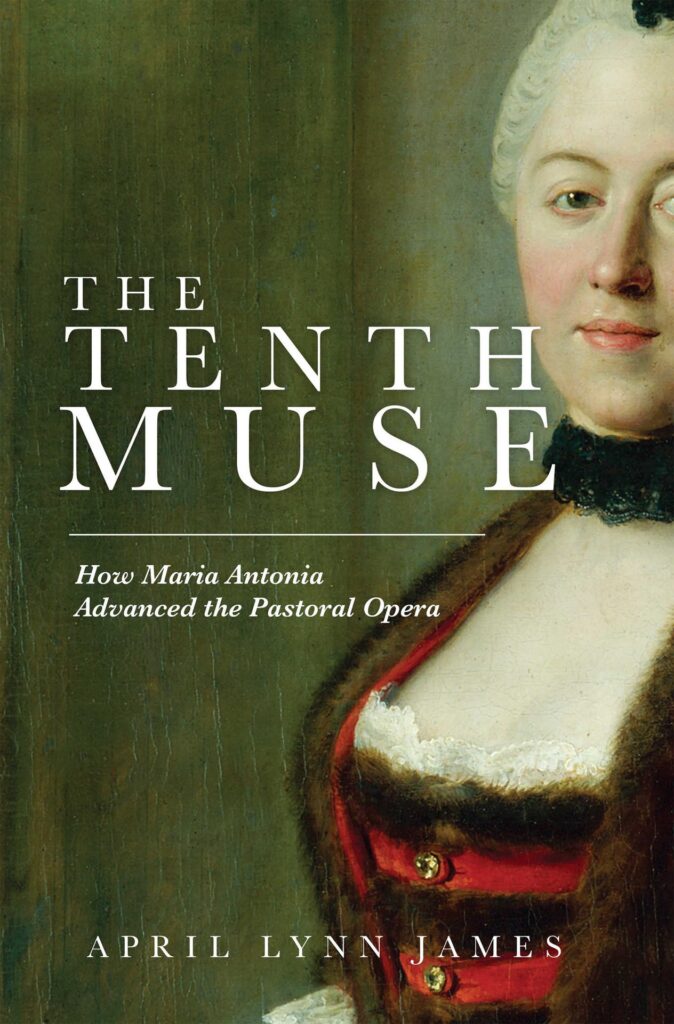Affectionately known as The PhDiva!!!, Dr. April is a classically trained soprano with a PhD from Harvard best known for her groundbreaking work returning operas composed by women to the world’s stages. She survived her Harvard doctoral studies—aka, “boot camp for book lovers”—by getting away from the computer and engaging in playful activities such as dance, juggling and mime, thereby healing from tendonitis, depression and stress-induced weight gain. She is also mad about Lewis Carroll, Alice in Wonderland, top hats and tea. Her mission is to bring joy to the world through sharing her talents, creativity and knowledge.
How’s your knowledge of ancient Greek mythology? Specifically, how familiar are you with the Muses? You probably know that there are nine of them cited by ancient writers and that each one is responsible for inspiring a different area of the arts and sciences.[1]

Marble sarcophagus with the contest between the Muses and the Sirens, 3rd quarter of 3rd century A.D. Roman.
The oldest of these is Calliope. She inspires epic poetry and eloquence. Next up, alphabetically speaking, is Clio, Muse of history. Then we have Erato, whose area of specialty is romantic poetry. Euterpe is the music Muse, with especial attention to the flute. Melpomene is the Muse of tragedy. Polyhymnia inspires lyric poetry, as well as geometry and rhetoric. Thalia is the Muse of comedy, whose name graces many a theater. Terpsichore rules light poetry and dance. Youngest of the Muses, and the last alphabetically, is Urania, Muse of astronomy and astrology.
Now that we’ve cleared that up, here’s your next question: How is your knowledge of 18th-century Germany? You probably know that Germany at that time wasn’t so much a unified country as a collection of princely states that were a part of the Holy Roman Empire. Bavaria was such a principality, as was Saxony. The heads of these princely states were known as “Electors”. Why? Because the title and position of “Holy Roman Emperor” was not entirely a hereditary one. Rather, it was also an elected one, and those aforementioned princely rulers were the ones doing the electing, hence their title, i.e., Elector of Bavaria, or Elector of Saxony, and so on.
To the Elector and Electress of Bavaria, in 1724, an extraordinarily talented daughter was born. She became legendary for her mastery of several of the arts. This daughter was a gifted singer, a soprano. She showed early ability at the harpsichord, and would go on to also play the lute. She composed music from an early age and sang in musical productions at court. She would master multiple languages and write poetry in French, Italian and Latin. She was also a skilled painter.
In time, she would grow up to marry the heir to the throne of Saxony and Poland. I will just mention here the slightly complicated geopolitics of that particular throne. The Elector of Saxony was also King of Poland at this time. This would have an impact upon our heroine down the line.
But we’re getting ahead in our story. Our Princess, now Princess Royal and Electoral of Saxony, would have her own musical establishment in the princely apartments there in Dresden, and she dreamt of turning Saxony into the fine arts capital of Europe. Because she united so many of the arts into herself and was celebrated for her gifts in music, poetry, and painting, she was hailed as The Tenth Muse, which happens to be the title of my new book. The Tenth Muse: How Maria Antonia Advanced the Pastoral Opera is about a woman who was so inspiring that children were named after her, including her cousin Marie Antoinette, the future Queen of France.
Maria Antonia and her first opera, Il trionfo della fedeltà, were celebrated inside and outside the courts of Europe. The pastoral opera was already a genre popular with noblewomen, but Maria Antonia took it to new heights, finding it an ideal venue in which to explore themes of love, fidelity and self-presentation. The life and music of Maria Antonia Walpurgis Symphorosa, Princess of Bavaria—later Princess and then Electress of Saxony.—are examined in my work, the first book-length biography in English about Her Highness. To learn more, grab your copy from Amazon today! Special new release pricing this week.
[1] For descriptions and depictions of each Muse, see , Luisa Rosenstiehl, “The Nine Muses of Greek Mythology and Their Powers.” GreekReporter.com, 4 July 2023.

